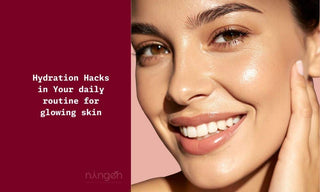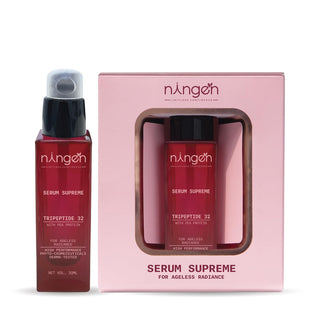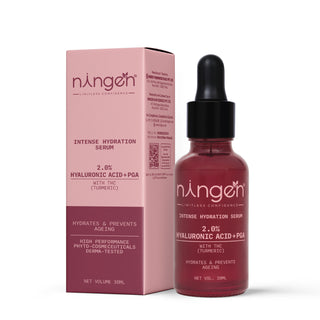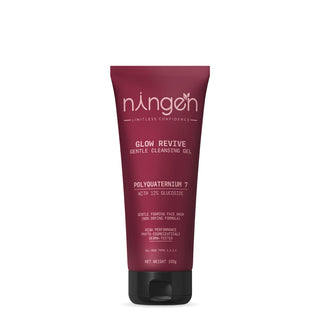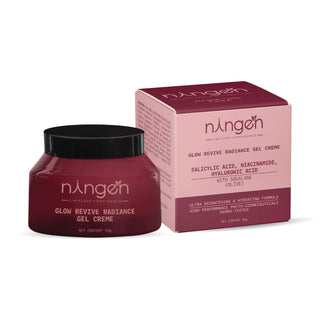TL;DR
Transform your skin with these proven hydration hacks: drink 8-10 glasses of water daily, incorporate hydrating foods like watermelon and cucumber, use a humidifier, apply hyaluronic acid serum, and never skip moisturizer. Layer your skincare from thinnest to thickest consistency, eat water-rich fruits, and consider electrolyte supplements for optimal cellular hydration. These simple daily routine changes can dramatically improve your skin's moisture barrier and give you that coveted healthy glow.
Have you ever wondered why some days your skin looks dull and tired, while on others it feels plump, smooth, and radiant? The secret isn’t always about expensive facials or 10-step skincare routines. It’s often as simple as hydration. Your skin is like a plant: give it enough water and it thrives, neglect it and it wilts. Proper hydration is the real game-changer that keeps your face fresh, bouncy, and youthful. From the water you drink to the products you apply, every little step adds up.
Let’s dive into the smart hydration hacks in your daily routine for glowing skin that your skin will thank you for.
In this Guide;
Why Hydration is Your Skin's Best Friend?
The Ultimate Internal Hydration Game Plan
Revolutionary External Hydration Techniques
Advanced Hydration Strategies for Maximum Glow
What is Hydration?
Hydration is all about giving your skin the water it needs to stay healthy, plump, and glowing. Just like your body feels dull and tired without enough water, your skin can look dry, tight, or even oily when it is dehydrated. Proper hydration helps maintain a strong skin barrier, balances oil production, and prevents issues such as fine lines, dullness, and breakouts. It does not only mean drinking water, although that is important, but also using the right skincare products that lock in and deliver moisture. Think of hydration as your skin’s daily fuel to stay soft, smooth, and radiant.
Why Hydration is Your Skin's Best Friend?
Before diving into the hacks, let's understand why hydration matters so much for your skin. Your skin is composed of about 30% water, which helps maintain its elasticity, plumpness, and overall health. When you're dehydrated, your skin becomes the first casualty, appearing dull, flaky, and more prone to fine lines and wrinkles.
Research published in the International Journal of Cosmetic Science shows that proper hydration can improve skin thickness, density, and overall appearance within just two weeks. This isn't just about drinking more water (though that's crucial too); it's about creating a comprehensive hydration strategy that works from the inside out.
The Ultimate Internal Hydration Game Plan
Start Your Day with Lemon Water
Begin each morning with a large glass of warm water infused with fresh lemon juice. This simple ritual jumpstarts your metabolism, aids digestion, and provides your skin with vitamin C – a powerful antioxidant that supports collagen production. The warm water helps your body absorb the hydration more effectively than cold water, setting the tone for optimal hydration throughout the day.
The 8x8 Rule (With a Twist)
While the traditional advice suggests eight 200ml glasses of water daily, your actual needs might vary based on your activity level, climate, and body size. A more personalized approach is to drink half your body weight in ounces of water daily. For example, if you weigh 63 kilograms, aim for about 2.1 liters of water daily. Add an extra 350–475 ml for every hour of exercise or if you're in a particularly dry environment.
Eat Your Water
Incorporate water-rich foods into your daily meals. Cucumber (96% water), watermelon (91% water), tomatoes (94% water), and leafy greens like spinach and lettuce not only contribute to your daily fluid intake but also provide essential vitamins and minerals that support skin health. These foods offer sustained hydration because they release water slowly as they're digested.

Time Your Hydration Strategically
Spread your water intake throughout the day rather than chugging large amounts at once. Drink a glass upon waking, one before each meal, and sip consistently between meals. Avoid drinking large quantities right before bed to prevent sleep disruption, but keep a small glass nearby for occasional sips if you wake up thirsty.
Hydration Tips Tailored for Every Skin Type
Keeping your skin hydrated isn’t just about slathering on any moisturizer—it’s about understanding how your unique skin type absorbs and holds water, and choosing the right formulas that work with your skin rather than against it. Hydration looks different for every skin type, and knowing what your skin craves is the secret to a healthy glow:
-
Dry Skin: Needs rich, nourishing moisturizers with hyaluronic acid, ceramides, and natural oils to lock in hydration.
-
Oily Skin: Benefits from lightweight, gel-based hydrators that balance oil production without clogging pores.
-
Combination Skin: Requires a dual approach—hydrating lighter on oily zones (T-zone) and richer on dry areas (cheeks).
-
Sensitive Skin: Thrives on soothing, fragrance-free formulas with ingredients like aloe vera, oat extract, or panthenol.
-
Normal Skin: Does best with balanced creams or lotions that maintain hydration without being too heavy or too light.
The key is tailoring your routine so your skin drinks up exactly what it needs—no more, no less.
Also read: How to know your skin type.
Revolutionary External Hydration Techniques
The Layering Method That Changes Everything
The key to effective topical hydration lies in proper layering. Apply products from thinnest to thickest consistency: start with a hydrating toner or essence, follow with a hyaluronic acid serum on damp skin, then apply a lightweight moisturizer, and seal everything with a facial oil if you have dry skin. This method creates multiple layers of hydration that work synergistically to lock moisture into your skin.
Hyaluronic Acid: Your Skin's Moisture Magnet
Hyaluronic acid can hold up to 1,000 times its weight in water, making it the ultimate hydration powerhouse. Apply a hyaluronic acid serum to slightly damp skin – this gives the molecule something to bind to and creates a more effective moisture barrier. Look for serums containing different molecular weights of hyaluronic acid for both surface and deep skin hydration.

The Humidifier Hack
Indoor air, especially during winter months or in air-conditioned environments, can be incredibly drying. A humidifier maintains optimal moisture levels (ideally 40-60% humidity) in your environment, preventing your skin from losing water to dry air. Place one in your bedroom and office space for maximum benefit.
Facial Misting Throughout the Day
Keep a facial mist at your desk and in your bag for quick hydration boosts. Choose mists containing hyaluronic acid, glycerin, or ceramides rather than plain water, as these can be drying. Spray your face with this product before applying moisturizer to enhance its hydrating effects, and use it as a midday pick-me-up to refresh your complexion.
Advanced Hydration Strategies for Maximum Glow
The 3-2-1 Evening Ritual
Three hours before bed, finish your last large glass of water. Two hours before, apply a rich night moisturizer or sleeping mask. One hour before, do some gentle face massage or gua sha to promote circulation and lymphatic drainage. This timing ensures you're well-hydrated without disrupting sleep and maximizes your skin's overnight repair process.
Electrolyte Enhancement
Sometimes water alone isn't enough. Adding a pinch of high-quality sea salt or electrolyte powder to your water can improve cellular hydration. Electrolytes help your cells actually absorb and retain the water you're drinking rather than just passing it through your system. Look for products containing sodium, potassium, and magnesium.
The Sandwich Method for Skincare
Apply your moisturizer using the "sandwich" method: put on a thin layer, wait 2-3 minutes for absorption, then apply a second layer. This technique ensures maximum product penetration and creates a more robust moisture barrier. It's particularly effective for those with dehydrated skin.
Strategic Supplement Support
Consider supplements that support skin hydration from within. Omega-3 fatty acids help strengthen your skin's lipid barrier, while collagen peptides can improve skin moisture and elasticity. Vitamin E and ceramide supplements also show promise in supporting skin barrier function and hydration levels.
Environmental and Lifestyle Hydration Boosters
Shower Smart for Skin Health
Hot showers might feel amazing, but they strip your skin of natural oils. Opt for lukewarm water and limit shower time to 5-7 minutes. Immediately after showering (while your skin is still damp), apply a body moisturizer to trap the moisture. This technique, called "wet skin moisturizing," can significantly improve overall skin hydration.
Sleep Position and Pillow Choice
Sleeping on your back helps prevent fluid from pooling under your eyes, reducing morning puffiness. Invest in a silk or satin pillowcase, which creates less friction against your skin and hair, helping maintain moisture levels throughout the night. These materials also don't absorb skincare products like cotton does.
Stress Management for Skin Hydration
Chronic stress increases cortisol levels, which can impair your skin's barrier function and lead to increased water loss. Incorporate stress-reduction techniques like meditation, yoga, or deep breathing exercises into your daily routine. Even 10 minutes of mindfulness practice can positively impact your skin's health and appearance.
Creating Your Personalized Hydration Schedule
Morning (6 AM - 12 PM): Start with lemon water, apply vitamin C serum and lightweight moisturizer, eat water-rich fruits for breakfast, and maintain steady water intake with a goal of 30% of your daily requirement.
Afternoon (12 PM - 6 PM): Focus on maintaining hydration levels with regular sipping, include hydrating foods in lunch, apply facial mist if needed, and complete another 40% of your daily water intake.
Evening (6 PM - 10 PM): Wind down with herbal tea, apply your evening skincare routine using the layering method, and finish the remaining 30% of your daily water intake at least 2 hours before bed.
The Science Behind Glowing, Hydrated Skin
Recent dermatological research emphasizes the importance of the skin microbiome in maintaining proper hydration. A healthy microbiome helps maintain the skin's pH balance and barrier function, which directly impacts moisture retention. Probiotic skincare products and a diet rich in prebiotics can support this delicate ecosystem.
Studies also show that consistent hydration habits create lasting changes in skin appearance. A study published in Clinical, Cosmetic and Investigational Dermatology found that participants who followed a structured hydration routine for 30 days showed measurable improvements in skin elasticity, smoothness, and overall radiance that persisted even after the study period.
Also read: Nutrition add-on to improve skincare routine for teenagers.
The Bottom Line
At the end of the day, glowing skin isn’t just about products, treatments, or quick fixes—it’s about consistency and smart hydration. By fueling your body with enough water, eating water-rich foods, and layering your skincare the right way, you’re giving your skin exactly what it needs to stay soft, plump, and radiant. Remember, hydration isn’t a one-time act—it’s a lifestyle choice that shows up on your face every single day.
Now it’s your turn. Have you tried any of these hydration hacks? Which one works best for your skin type? Share your thoughts and suggestions in the comments below—I’d love to hear your skincare secrets too!
Frequently Asked Questions
Q1. How much water should I drink daily for glowing skin?
A. Aim for half your body weight in ounces of water daily, plus an additional 12-16 ounces for exercise or dry environments. For most people, this equals 8-10 glasses per day, but individual needs vary based on activity level, climate, and overall health.
Q2. Can drinking more water actually improve my skin's appearance?
A. Yes, studies show that adequate hydration can improve skin thickness, elasticity, and overall appearance within 2-4 weeks. However, topical hydration through proper skincare is equally important for optimal results.
Q3. What's the best time to apply hyaluronic acid serum?
A. Apply hyaluronic acid serum to clean, slightly damp skin before your moisturizer. This allows the molecule to bind with existing moisture and creates a more effective hydrating barrier.
Q4. How long does it take to see results from better hydration habits?
A. Most people notice initial improvements in skin texture and plumpness within 1-2 weeks of consistent hydration habits. Significant changes in skin glow and elasticity typically appear after 4-6 weeks of maintained routine.
Q5. Are hydrating foods as effective as drinking water for skin health?
A. Hydrating foods provide sustained moisture release plus essential vitamins and minerals that support skin health. While they shouldn't replace water intake, they're an excellent complement to your hydration strategy.
Q6. Should I use a humidifier year-round for better skin?
A. Humidifiers are most beneficial in dry climates, heated indoor spaces, or air-conditioned environments. Maintain 40-60% humidity levels for optimal skin comfort and hydration.
Q7. Can over-hydrating harm my skin?
A. Drinking excessive amounts of water can dilute electrolytes and impair cellular hydration. Stick to recommended amounts and consider adding electrolytes if you're drinking large quantities of water.
Q8. What's the difference between dehydrated skin?
A. Dehydrated skin lacks water and can affect any skin type, causing tightness and dullness. Dry skin lacks oil production and is a skin type that requires oil-based products in addition to hydrating ingredients.
Q9. Do I need different hydration strategies for different seasons?
A. Yes, increase water intake and use richer moisturizers in winter or dry climates. In humid conditions, lighter hydrating products may be sufficient, but consistent internal hydration remains important year-round.
Q10. Can certain medications affect my skin's hydration levels?
A. Yes, medications like diuretics, antihistamines, and some acne treatments can increase dehydration. If you're on medication, consult your healthcare provider about maintaining optimal hydration and consider adjusting your skincare routine accordingly.
Sources and Further Reading:
-
International Journal of Cosmetic Science - Skin Hydration Research
-
Clinical, Cosmetic and Investigational Dermatology
-
American Academy of Dermatology - Skincare Guidelines
-
Journal of Clinical Medicine - Dermatological Hydration Study


